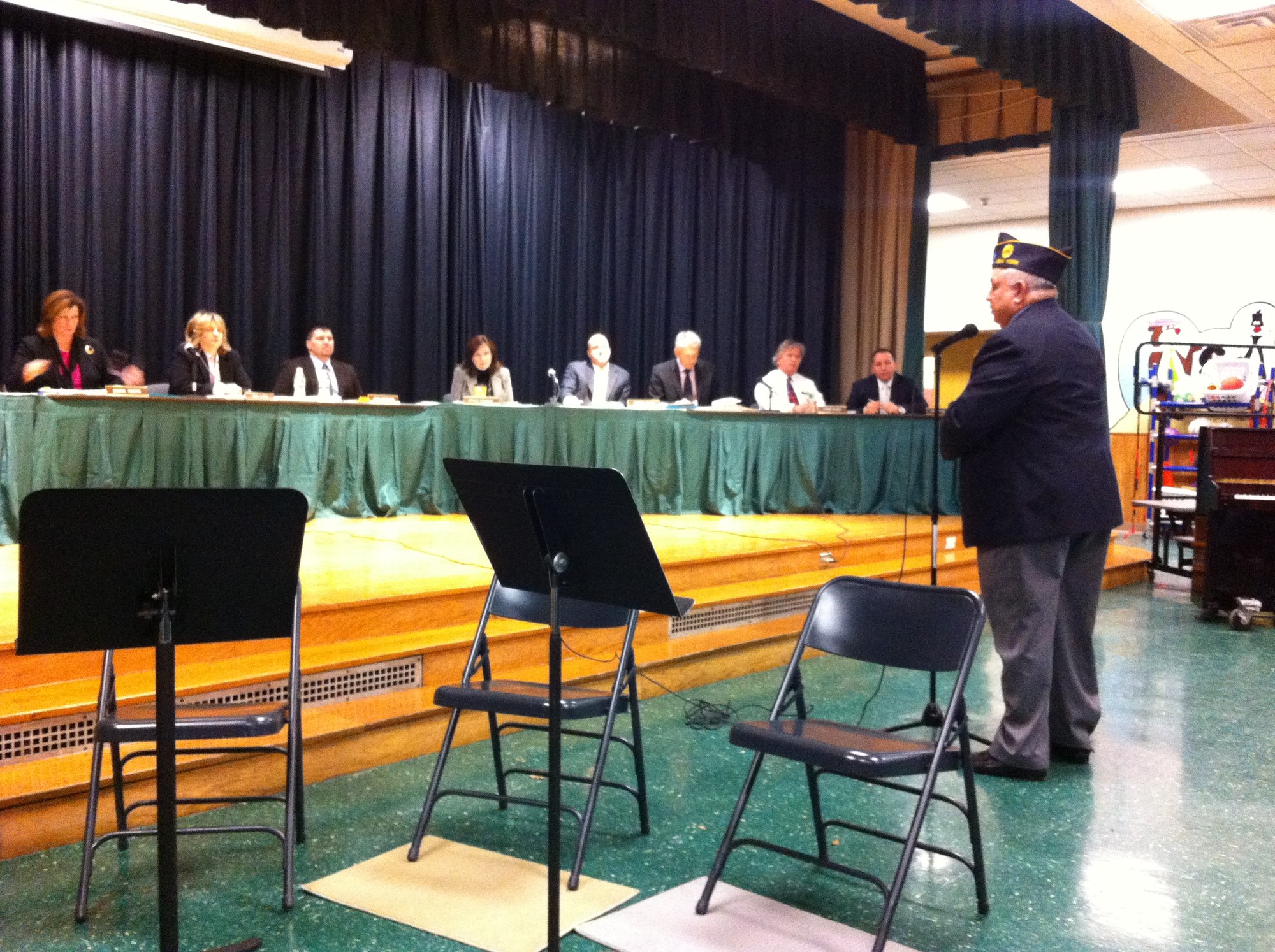Bellmore veterans to get school tax break
The hundreds of veterans who live in the Bellmores can anticipate a break in their school taxes in the near future, as both elementary districts recently passed the veterans’ tax exemption.
New York veterans have been eligible for state, county, town and village tax exemptions for some time, according to Bellmore and North Bellmore district officials. Last Dec. 18, Gov. Andrew Cuomo signed a bill that gave boards of education the option to offer an exemption as well.
The Bellmore Board of Education adopted the exemption at its Feb. 11 meeting, while the North Bellmore board did so on March 13. Now the assessed value of veterans’ homes in each district will be reduced, so they will pay less in school taxes.
At recent board meetings, Maryanne Kelly and Nina Lanci, the board presidents in Bellmore and North Bellmore, respectively, explained the exemption’s three categories. Each category has its own range by which the assessed value of a home is reduced: wartime veteran in a non-combat zone (by up to $12,000), wartime veteran in a combat zone (up to $20,000) and wartime veteran in a combat zone who has a “service-connected” disability (up to $60,000).
While school boards of several nearby districts have also adopted the exemption, others, in communities like Lynbrook, have denied it to avoid school tax increases for non-veterans. Unlike the School Tax Assessment Relief, or STAR, program, the state does not plan to reimburse the revenue that a school district would lose from veterans who qualify for the exemption. Mark Schissler, North Bellmore’s assistant superintendent for business, explained that other taxpayers in a district would have to make up the difference.
Bellmore district officials said the average non-veteran’s school taxes would increase by $15 per year under the next exemption. They noted that 375 veterans live in the district. In North Bellmore, Schissler said, there are more that 1,100 veterans. There the average non-veteran’s school taxes would increase by about $40 per year, he said.

 48.0°,
Overcast
48.0°,
Overcast 




